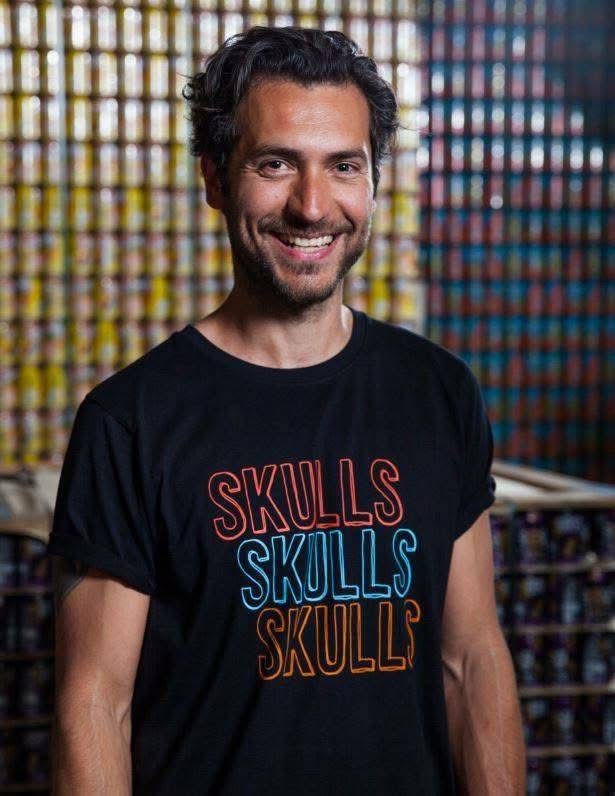Logan Plant, the son of legendary Led Zeppelin frontman Robert Plant, has crafted a distinct and impressive identity that extends well beyond his famous musical lineage. Born in 1979, Logan initially followed a passion for music, pursuing a career as a singer and fronting bands like Sons of Albion. But it was a trip to Brooklyn that sparked a surprising and transformative shift in his creative pursuits—away from the stage and into the world of craft beer.
Growing up in a household steeped in musical influence, Logan’s early years were defined by a love for performance and artistry. He immersed himself in the musical scene, carving out a reputation as a talented vocalist and bandleader. However, his journey took an unexpected turn during a visit to Brooklyn, where he developed a fascination with the craft beer movement flourishing in the United States. The vibrant culture of independent breweries, experimental brews, and innovative branding resonated deeply with him. Inspired, Logan decided to pursue this newfound passion and launched Beavertown Brewery in 2011, starting modestly in the basement of a London BBQ joint.
From these humble beginnings, Beavertown quickly gained momentum, driven by Logan’s bold vision and a commitment to pushing the boundaries of beer craftsmanship. He emphasized experimentation, producing beers that were not only flavorful but also visually striking, often featuring eye-catching, comic-style artwork designed by Nick Dwyer. This distinctive branding became a hallmark of Beavertown’s identity, attracting a diverse audience and setting the company apart in a crowded craft beer market.
Among Beavertown’s most popular offerings are Gamma Ray, an American-style pale ale, and Neck Oil, a session IPA that became a staple across pubs and stores throughout the UK. These beers exemplify Logan’s approach—bold, innovative, and accessible—helping to reshape the British craft beer scene and challenge traditional perceptions of beer quality and style. His emphasis on creativity, quality, and branding transformed Beavertown from a small startup into one of the UK’s most recognized craft breweries.
The company’s rapid growth drew significant attention from industry giants. In 2018, Beavertown secured a minority investment from Heineken, providing capital to expand production capacity and distribution while allowing Logan to retain control of the brand’s creative direction. The partnership marked a notable milestone, illustrating how a small, independent brewery could attract the interest of a global beverage conglomerate without compromising its identity. Under Logan’s leadership, Beavertown continued to innovate and expand, maintaining its reputation for bold flavors and striking visuals.
By 2022, Heineken decided to acquire the remaining stake in Beavertown, making it a fully owned subsidiary. The acquisition allowed Logan to step down from his role as CEO and shift into an advisory capacity, paving the way for new leadership to oversee the company’s future growth. Despite his reduced role, Logan remains an influential figure within the company and the broader craft beer industry, admired for his entrepreneurial spirit and creative vision.
Today, Logan Plant stands as a testament to how passion, innovation, and a willingness to explore new territories can forge a remarkable legacy—one that stands proudly alongside his father’s musical achievements. His journey from musician to brewery founder highlights the importance of following one’s curiosity and embracing change. Through Beavertown, he has built a brand that champions independence, creativity, and quality, inspiring a new generation of craft beer enthusiasts.
In a landscape often dominated by corporate consolidation, Logan’s story exemplifies how authentic, bold branding and a commitment to craftsmanship can carve out a lasting legacy. As he continues to influence the industry from his advisory role, his journey underscores the power of reinvention and the enduring appeal of pursuing passions with purpose and originality. Logan Plant’s evolution from music to brewing reflects a modern entrepreneurial spirit—restless, innovative, and dedicated to building a legacy that’s as bold as the beers he helped create.
